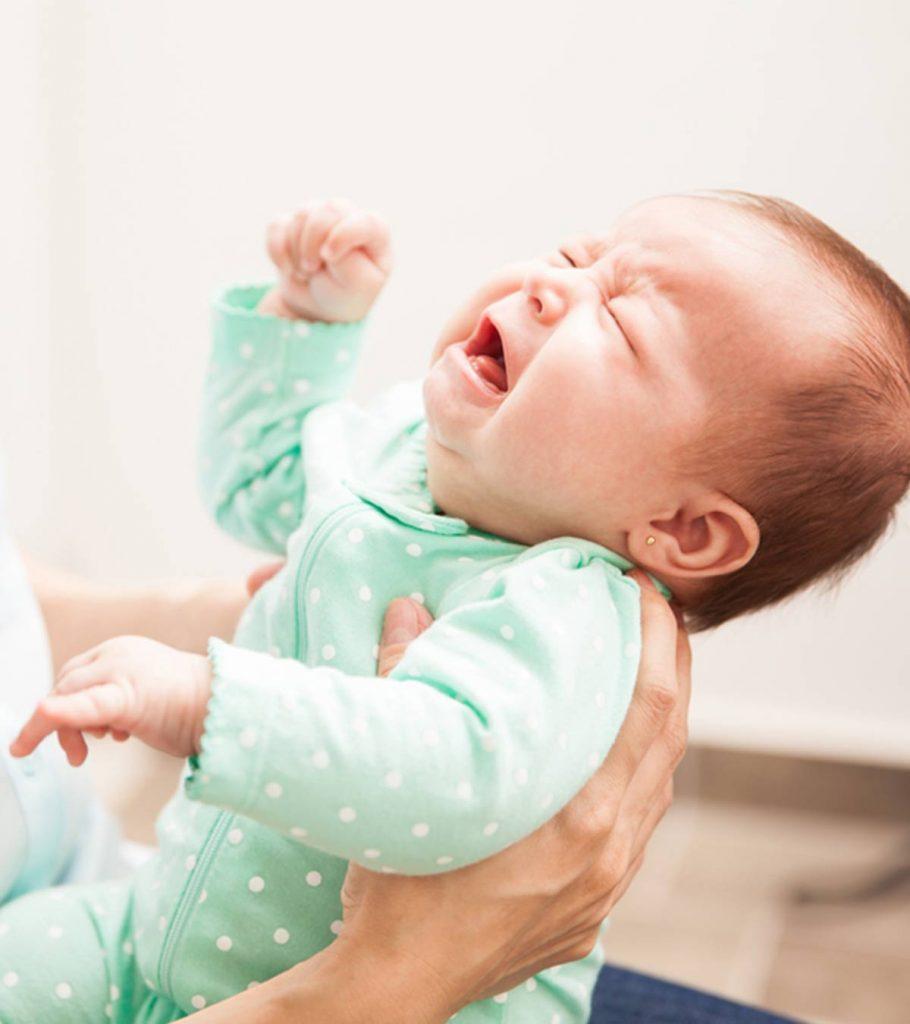Image: Shutterstock
Everything is new to a newborn, as they are yet to adjust to their body’s various functions and the world around them. So, some babies may cry while pooping as the sensation might be strange for them. However, sometimes, babies may cry while pooping as a result of pain or a tummy issue.
If your baby often cries while pooping, and if you find additional symptoms, it is best to understand the underlying cause and treat it. Here is a post that tells you the possible reasons a baby cries while pooping and what you could do about it.
Why Do Babies Cry While Pooping?
The reasons for your baby crying while pooping may range from your baby getting used to the sensation of pooping to an underlying medical condition. Let us look at each in detail.
1. Getting used to the sensation of pooping
If your baby cries during pooping in the initial days, it could be because they are still adapting to the sensation of pooping. It could also be because the baby’s abdominal muscles are still underdeveloped, making it difficult to pass stools (1).
This is quite normal, and you need not worry if your baby makes faces or grunts while pooping as they will get used to it with time.
2. Constipation
Infants might also suffer from constipation, which can make them cry while pooping. If the bowel movements are hard and irregular, your baby could be constipated. The common signs of constipation in babies include (1):
- Fussiness
- Spitting up
- Hard and dry stools
- Pain while passing stools
- Tummy pain and bloating
- Having less than three bowel movements in a week (this is more common in children)
3. Infant dyschezia
This is a condition in which the infant strains and cries for more than ten minutes before defecating. The baby’s face may turn red or purple until the passage of soft or liquid stool. This is a normal and very common condition and might resolve after a few weeks (2).
4. Anal fissure
If your baby has chronic constipation, they might develop anal fissure. The condition is defined as a small tear of the skin in the lining of the anus or anal canal, which is a consequence of passing hard stools. A recent study suggests that colic in infants is closely associated with anal fissures and painful defecation (3).
5. Colic
Colic affects approximately 10–40% of infants. It peaks at around six weeks of age, and the symptoms start to resolve by three to six months. Babies tend to uncontrollably cry while suffering from colic. Other symptoms include bloody stools, excessive gas and pain during pooping, skin rashes, and vomitings. So, if your baby cries while pooping, try to determine if it is colic (4).
When Should You Worry?
Mild grunting and occasional crying while pooping are common in infants. However, if your baby cries excessively during defecation, and you notice fever, feeding difficulties, and blood in their stools, it is best to take them to your pediatrician.
Tips To Stop Babies From Crying While Pooping
Breastfeeding babies may poop several times a day to once a week, and formula-fed infants may poop several times a day to once in four days (5). So, do not worry if your child occasionally cries while pooping. However, you can always use some handy tips to help them manage pain and stop them from crying.
- If you are breastfeeding, try and change your diet and see if your baby passes soft stools subsequently. In the case of formula feeding, consult a lactation expert or your pediatrician.
- Include high fiber foods, such as broccoli, pears, prunes, and bananas in the diet of babies who have started on solids.
- Keep your baby hydrated by feeding them milk from time to time. For babies older than six months, you can offer them water or pear juice.
- Gently massage your baby’s belly button and stomach area. You can also bicycle their legs to help them release excess gas.
- Put a warm compress on their belly to help them pass stools more comfortably. Also, make sure you burp your baby after every feed.
- Probiotics may help relieve colic symptoms in babies. Talk to your pediatrician and administer them accordingly.
As long as your baby is healthy and happy, you need not worry if they cry while pooping. However, keep track of your baby’s pooping to make sure they do not develop constipation. If you find any early signs of constipation or tummy trouble, take precautionary measures to prevent the problem from getting worse. Always talk to a pediatrician if your baby cries uncontrollably during defecation and passes hard stools with blood.
